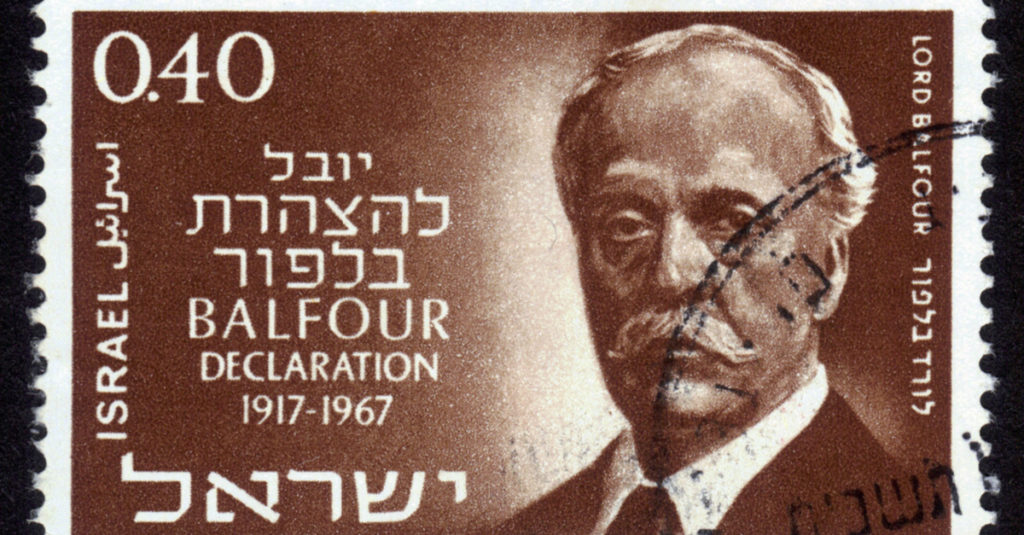The dispossession of the Palestinians by Zionist terror gangs – or the Nakba – could not have happened without British connivance and the complicity of so-called Muslim leaders.
May 15th marks Nakba Day, a day which commemorates the tragic events of 1948-1949 when systematic killing, ethnic cleansing, and the displacement of hundreds of thousands of Palestinians took place.
The Nakba, meaning “catastrophe” in Arabic, refers to the expulsion and displacement of approximately 750,000 Palestinians from their homes, when Zionist occupiers declared their usurping of the land on May 14, 1948. More than 500 Palestinian villages were destroyed, and the majority of those forced to flee became refugees, unable to return to their homes.
To get some idea of how bad the violence was, it is worth watching some videos of Zionist veterans boasting about their crimes here, here and here.
Today, 75 years after the Nakba, Palestinians continue to face numerous challenges. The Gaza Strip remains besieged, with severe restrictions on movement and limited access to basic necessities.
Palestinians in their own land are treated as second-class citizens, facing discrimination and marginalisation. Land confiscation, home demolitions, and the appropriation of mosques further exacerbate their plight.
Over five million Palestinians still live in exile, residing as second-class citizens in countries like Syria, Jordan, and Lebanon – often in refugee camps. The Nakba’s consequences continue to affect generations of Palestinians, perpetuating their struggle for justice and self-determination. Denied the right of return, they endure difficult living conditions, lacking the stability and rights enjoyed by citizens.
Subscribe to our newsletter and stay updated on the latest news and updates from around the Muslim world!
The Nakba did not occur primarily due to the power of Zionist terror groups; or an organised or “all-powerful” lobby. British colonial interests were the major factor in facilitating the establishment of the Zionist occupation.
The Balfour Declaration of 1917, which expressed British support for a Jewish national home in Palestine, served colonial aims rather than humanitarian concerns. Arthur Balfour – who signed the infamous letter as Foreign Secretary – had, as Prime Minister in 1905, previously passed the Alien Act which prevented Jewish refugees fleeing persecution in eastern Europe gaining asylum in the UK.
Moreover the British government that endorsed the Balfour Declaration refused to accept the pleas of English Jews, like Edwin Montague, who thought that the promise of a Zionist homeland for Jews would worsen discrimination in Britain – identifying them as “foreigners” who ought to leave for their new homeland.
Senior British Diplomats were aware the British agenda and the Zionist agenda were different. The British statesman Lord Curzon wrote to Balfour in 1919 warning that: “Weizmann (the leader of the World Zionist Movement) contemplates a Jewish state, a Jewish nation, a subordinate population of Arabs, [and that Weizmann was]… trying to affect this behind the screen and under the shelter of British trusteeship.”
That tension has continued ever since, even with the United States becoming the dominant sponsor of the Zionists.
The role of colonial powers
Britain’s involvement in Palestine was motivated by military and strategic objectives, particularly to safeguard the route to India, known as the jewel in the British crown because it had been the major source of wealth for Britain for more than a century.
In 1920 Lord Curzon told the House of Lords they went to Palestine “for distinct military and strategic objectives.” He later explained Middle East policy saying: “You ask why should Britain push herself out in these directions? Of course, the answer is obvious – India.”
Control over Palestine protected Egypt – the Suez canal being a vital trade route to India.
Britain’s idea was to use Zionism to create a colony to facilitate their interests. According to a senior diplomat at the time, Ronald Storrs, they wanted “a little loyal Jewish Ulster” – making an analogy with Northern Ireland. The parallels were that they wanted a colony created by importing foreign migrants.
And this was achieved by terrible means. After World War One, Britain and France divided the Middle East according to the Sykes-Picot agreement of 1916. They created artificial states, with client rulers after the abolition of the Ottoman Caliphate. Britain was given a mandate by the victorious powers under the newly formed League of Nations, fomenting sectarian violence a d dividing the land for “peace.”

Britain also encouraged mass Jewish immigration, mainly from Europe. This changed the demographics dramatically. There were around 60,000 Jews in Palestine at the end of World War One in 1918 – around 8% of the population. By 1947, there were over 600,000, making up 32% of the population. By the end of 1948, with the expulsion of Palestinians, the Jewish population in the newly-occupied land made up over 80% of the population.
This mass migration did not simply put a strain on resources. Under British rule, there was huge sectarian conflict. Zionist terror groups and militias targeted both the British – trying to force them to fulfil the Balfour pledge – and Palestinians. The British handed the decision on the future of Palestine to the newly-formed United Nations, after having created the conditions for an irreconcilable conflict. In 1947 the UN proposed a partition plan that aimed to divide Palestine into separate Jewish and Arab states.
By this stage the attacks on Palestinians had escalated. In April 1948 – before the expiry of the British mandate, Zionist terror groups committed a deliberate massacre in the village of Deir Yassin.
On May 14, 1948, the British mandate expired and the Zionists unilaterally declared their own state – which the United Nations soon endorsed. It wasn’t that terrorism had won – it was that terrorism was allowed to thrive and then win.
Britain’s ruthless colonialism in Palestine is not different to other regions. Churchill summarise this to the Peel Commission in 1937 when he dismissed the idea that Zionists were colonial settlers saying: “I do not admit that the dog in the manger (a reference to the Palestinian people) has the final right to the manger, even though he may have lain there for a very long time. I do not admit, for instance, that a great wrong has been done to the Red Indians of America, or the black people of Australia. I do not think the Red Indians had any right to say: ‘The American Continent belongs to us and we are not going to have any of these European settlers coming in here.’ They had not the right, nor had they the power.”
So the Palestinians, like the original native populations of Australia or North America, were expendable.
Betrayals by Muslim rulers
Throughout history, rulers in Muslim countries have frequently betrayed the Palestinian cause.
From Sharif Hussein’s betrayal of the Ottomans, which allowed the UK to seize Palestine, to recent normalisation agreements by states like the UAE, Bahrain, Morocco and Sudan – the rulers have been the real Zionist defence force.
Amongst their biggest crimes were their actions in 1948. After the declaration of “statehood” and violence within Palestine, armies of neighbouring Arab states intervened -claiming to defend the Palestinians, who were encouraged to leave till the fighting was over.
They left thinking it would be for days or weeks, only to find that these client states surrendered the land by laying down their weapons. The United Nations called for a ceasefire which the Arab states complied with, whilst the Zionists used the lull to rearm themselves and reconcile their gains.
The Ummah possesses the capability in material terms to liberate Palestine and bring an end to the Nakba. However, there is no political will amongst the current rulers. The people of Palestine await today’s Salahuddin – a sincere leader, motivated by Islam, who would unify the Muslims and harness all the ample resources.
Let’s not forget that it was a geopolitical change in the region that led to this catastrophe – invasion and occupation, abolition of the Caliphate, division and colonisation. And it’s only a similar scale geopolitical shake-up of the Middle East order that will end the on-going catastrophe.
Abdul Wahid has been published on the websites of Foreign Affairs, Open Democracy, the Times Higher Educational Supplement and Prospect Magazine.



















